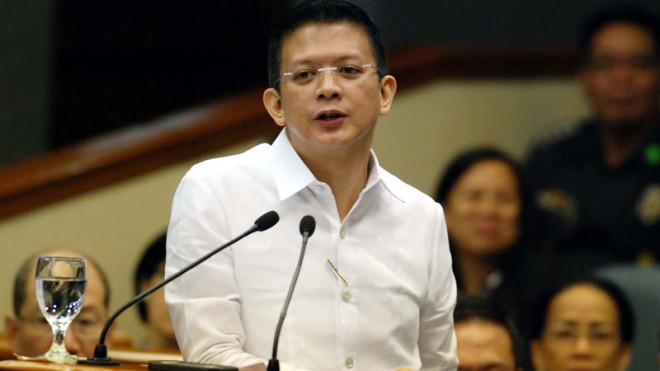Congress fixes definition of ‘savings’
MANILA, Philippines—The two houses of Congress have agreed on a definition of “savings” that would allow a government agency to declare and use them only after satisfying certain conditions, and if the savings did not result from the agency’s fault or negligence.
Sen. Francis Escudero and Davao City Rep. Isidro Ungab, the cochairs of the bicameral conference committee, said the panel was inclined to adopt the new definition of savings in the proposed P2.606-trillion budget for 2015 up for approval next week.
The new definition eschews the phrase proposed by the Department of Budget and Management (DBM)—“at any time for justifiable causes”—as to when a fund may be declared as savings and realigned for other purposes by an agency.
Savings, per the committee’s recommendation, shall refer to a portion or balance of a released appropriation that has not been obligated as a result of any of the following:
- Final discontinuance or abandonment of an ongoing program, activity or project by the agency head through no fault or negligence of the agency.
- Noncommencement of the program, activity or project, or inability of an agency to obligate the released allotment and implement the project due to natural or manmade calamities or other causes not attributable to the agency’s fault or negligence.
- Decreased cost of the project resulting from improved efficiency during implementation or until completion, provided the agency can still deliver targets and services.
- A difference between the approved contract budget and the contract award price.
Unused compensation
Savings may also refer to available balances of appropriations arising from unused compensation and related costs pertaining to unfilled, vacant or abolished positions; nonentitlement to allowances and benefits; leaves of absence without pay, and unused pension and retirement benefits arising from the death of pensioners, a decrease in retiree numbers and related causes.
Programmed appropriations not released or allotments not obligated “due to the fault of the agency” shall not be considered savings, according to the bicameral committee.
“I’m both optimistic and confident that the proposed definition of savings, the use of savings, and its augmentation will be adopted by the committee,” Escudero told reporters after Thursday’s panel meeting.
He said that this was a “pre-bicam” version that was worked on by the staff of both the House and Senate, “who know a lot more than we do,” prior to the next bicam meeting.
On Monday, the committee is set to meet to discuss and approve the reconciled version of the budget, reflecting amendments proposed by government agencies as well as the lawmakers themselves.
Ungab expressed optimism the measure would pass, given that it contained “more similarities than conflicting provisions.”
Both Escudero, chair of the Senate finance committee, and Ungab, chair of the House appropriations committee, said their chambers made sure the definition of savings would comply with the Supreme Court decision on the Disbursement Acceleration Program.
